-
Unlock the Future – Discover the Power of the Quantum AI App
-
Understanding Quantum AI: Core Concepts and Innovations
-
What is Quantum Computing and How Does It Function?
-
Key Differences Between Classical and Quantum AI
-
Recent Breakthroughs in Quantum Algorithms
-
Applications of Quantum AI in Diverse Industries
In an era where innovation drives progress, a new wave of intelligent applications is transforming industries and enhancing everyday life. By leveraging sophisticated algorithms and advanced computational mechanics, this quantum ai exceptional tool is set to redefine how we approach complex problems and engage with technology. Users can harness its remarkable capabilities to gain insights and streamline processes like never before.
Embracing this advanced technology positions individuals and organizations at the forefront of digital transformation. By integrating enhanced machine learning techniques, it enables predictive analytics, decision-making support, and personalized recommendations. This amalgamation of artificial intelligence with quantum mechanics expands possibilities in data processing and optimization, leading to unprecedented performance gains across various sectors.
Exploring this groundbreaking resource reveals its potential to address challenges ranging from supply chain inefficiencies to personalized healthcare solutions. The analytical prowess embedded in this instrument empowers users to make data-driven decisions swiftly, significantly reducing time spent on manual analysis and improving overall productivity. Adopting innovative AI tools is not merely an option; it is essential for those aiming to stay competitive in an increasingly agile marketplace.
Understanding Quantum AI: Core Concepts and Innovations
At the intersection of advanced computational techniques and principles of quantum mechanics lies an emerging discipline that promises to revolutionize problem-solving in various fields. Key concepts encompass quantum bits (qubits), superposition, and entanglement, which serve as building blocks for enhanced processing capabilities.
Qubits represent the fundamental unit of information, contrasting with classical bits. Unlike traditional binary states, qubits can exist in multiple states simultaneously, thanks to superposition. This characteristic allows for parallel processing of information, significantly increasing computational efficiency for complex algorithms.
Entanglement, another pivotal concept, involves quantum particles becoming linked in a manner that the state of one directly influences the state of another, regardless of distance. This interconnectedness can lead to breakthroughs in data transmission and cryptographic techniques, offering unprecedented security measures.
Current innovations in this realm include new algorithms designed for optimization problems, machine learning enhancements, and simulations of molecular structures. For instance, applications in drug discovery leverage quantum simulation capabilities to predict molecular behaviors more accurately than classical approaches, accelerating research timelines.
Implementing quantum neural networks signifies a notable advancement, allowing for intricate pattern recognition and decision-making processes previously unattainable. By harnessing the principles of quantum mechanics, these systems can analyze vast datasets rapidly, yielding insights that drive informed decision-making.
To engage with this evolving landscape, enthusiasts and professionals are encouraged to familiarize themselves with frameworks like Qiskit and Cirq, designed to facilitate quantum programming. This knowledge not only fosters innovation but also positions individuals at the forefront of a technological revolution reshaping industries.
Pragmatic applications of this technology extend to finance, logistics, and artificial intelligence, where organizations are beginning to realize the transformative potential these advancements hold. By optimizing operations and enhancing predictive models, businesses can achieve efficiency gains and competitive edges.
As research progresses, ethical considerations must also be addressed, ensuring that developments in this domain are guided by principles that prioritize societal benefit. Understanding the implications and responsibly managing integration will be crucial for sustainable advancements.
What is Quantum Computing and How Does It Function?
Quantum computing represents a radical shift from classical computing paradigms, leveraging principles of quantum mechanics to process information. Unlike binary systems that use bits as the smallest unit of data, this approach employs quantum bits or qubits, which can exist in multiple states simultaneously due to superposition.
Superposition allows qubits to perform complex calculations at unprecedented speeds, as they can represent both 0 and 1 at the same time. This characteristic dramatically increases computational power for specific tasks, such as optimization problems, cryptography, and simulations of molecular structures.
Entanglement is another fundamental property, where qubits become interlinked, allowing instant correlation between their states regardless of distance. This phenomenon enhances communication efficiency between qubits, which results in faster data processing and improved accuracy in computations.
Quantum gates–analogous to classical logic gates–manipulate qubits to perform various operations. These gates serve as the building blocks of quantum circuits, enabling operations that classical systems struggle to execute due to their inherent limitations in processing capacity.
Programming within this realm necessitates specialized languages, such as Qiskit and Cirq, which facilitate the construction and execution of quantum algorithms. These tools enable developers to craft applications that harness the unique advantages of quantum mechanics.
Challenges remain, notably in maintaining qubit coherence, as environmental factors can cause decoherence, leading to loss of information. Ongoing research is focused on enhancing error correction techniques and stabilizing qubit states to create reliable systems.
Key algorithms, such as Shor’s algorithm for factoring large numbers and Grover’s algorithm for searching unsorted databases, showcase the immense potential of this technology. As advancements continue, this domain promises to impact diverse sectors, from pharmaceuticals to finance, enabling innovative solutions that were previously unattainable.
Key Differences Between Classical and Quantum AI
Classical artificial intelligence operates on bits, which represent data in binary form–either 0 or 1. In contrast, quantum computing utilizes qubits, enabling a state of superposition where a qubit can represent multiple states simultaneously. This fundamental difference allows quantum-based systems to process vast amounts of information at unprecedented speeds.
In classical models, algorithms are designed to follow linear paths for computation, creating scalability issues as datasets grow. Conversely, quantum algorithms leverage entanglement and superposition, allowing for parallel processing that significantly enhances efficiency, especially in complex problem-solving where numerous variables are involved.
Classical AI heavily relies on deterministic rules and structured data for training, making it sensitive to the quality of input data. Quantum AI can analyze unstructured data more flexibly, taking advantage of its probabilistic nature to identify patterns even in noisy datasets, which is increasingly relevant in fields such as genomics and finance.
Additionally, classical systems often struggle with combinatorial optimization problems due to exponential growth in possibilities. Quantum computing excels in this area, utilizing quantum annealing to find optimal solutions faster than traditional brute-force methods, dramatically reducing computation time for complex scenarios.
Furthermore, machine learning models in classical paradigms typically require extensive data preprocessing and feature engineering, while quantum approaches can inherently discover underlying features due to their ability to operate in high-dimensional spaces. This can lead to improved model accuracy and reduced workload on data scientists.
It’s also essential to consider the energy efficiency aspect. Classical computers consume significant energy for large computational tasks, whereas quantum machines have the potential to outperform them in energy consumption by solving problems faster and with fewer resources.
Lastly, the ecosystem is shifting–quantum technology is still maturing, with many software frameworks and tools being developed. Exploit early-stage opportunities in this realm, as organizations begin to integrate quantum capabilities into their operations, presenting first-mover advantages in various industries.
Recent Breakthroughs in Quantum Algorithms
Recent advancements in quantum computing have led to the development of several innovative algorithms that show promise in solving complex problems more efficiently than traditional methods.
One notable breakthrough is Shor’s algorithm, which has gained attention for its ability to factor large integers exponentially faster than the best-known classical algorithms. This development poses significant implications for cryptographic security, prompting researchers to explore post-quantum cryptography techniques.
Another important advancement is Grover’s algorithm, which dramatically accelerates search tasks. This algorithm allows for searching unsorted databases in a time proportional to the square root of the number of entries, providing a substantial speedup over classical search methods.
With the recent rise in quantum machine learning, algorithms such as the Quantum Support Vector Machine (QSVM) have emerged. QSVM leverages quantum principles to handle high-dimensional data, enhancing classification tasks and pattern recognition processes.
- Variational Quantum Eigensolver (VQE): A hybrid algorithm combining classical optimization techniques with quantum computing to determine ground state energies of molecules.
- Quantum Approximate Optimization Algorithm (QAOA): Focused on solving combinatorial optimization problems, it uses quantum superposition and entanglement to explore solution spaces effectively.
- Quantum Fourier Transform (QFT): A quantum version of the classical Fourier transform, crucial for applications in signal processing and frequency estimation.
Research continues to enhance these algorithms, with a focus on error correction and improving coherence times. Universities and tech companies are partnering to develop quantum computing infrastructures, which is accelerating practical implementation.
In conclusion, the rapid evolution of quantum algorithms presents transformative potential across various fields, including cryptography, optimization, and artificial intelligence. As hardware improves, these algorithms will likely facilitate unprecedented advances in computational capacity.
Applications of Quantum AI in Diverse Industries
In finance, sophisticated algorithms leverage quantum computing for complex risk analysis and portfolio optimization. Institutions can process vast datasets rapidly, enabling predictive modeling that adjusts to market fluctuations in real-time, delivering competitive advantages. A notable example is D-Wave Systems, which collaborates with banks to utilize quantum annealing for optimizing investment strategies.
Healthcare stands to benefit significantly through enhanced drug discovery methods. Quantum-enhanced simulations allow researchers to model molecular interactions at unprecedented speed, accelerating the identification of viable pharmaceutical compounds. For instance, companies like Rigetti Computing are aiding biopharmaceutical firms in performing intricate calculations that streamline clinical trials and reduce development timelines.
Manufacturing sectors adopt quantum-informed approaches in supply chain optimization. By analyzing enormous quantities of logistical data, organizations can predict bottlenecks and improve resource allocation effectively. Firms like IBM are developing solutions that assist manufacturers in achieving leaner operations with minimal waste, thus enhancing productivity and sustainability.
Telecommunications companies explore new horizons by implementing quantum AI for network security. Utilizing quantum key distribution, they ensure data integrity and resilience against cyber threats. This has been particularly vital in sectors requiring stringent security protocols, such as governmental organizations and financial services, where maintaining privacy is paramount.
Additionally, the retail industry is exploring consumer behavior analysis through quantum computing. By harnessing the power of machine learning algorithms, retailers can personalize marketing strategies, optimize pricing models, and enhance inventory management. Companies like Google are investing in quantum solutions that promise to revolutionize customer experience by predicting trends with high accuracy.
In energy, innovative models predict supply and demand dynamics, facilitating smarter grid management and renewable energy integration. Utilities can implement quantum-derived algorithms to optimize energy distribution, leading to reduced costs and improved sustainability metrics. Projects leveraging quantum simulation capabilities can dramatically influence energy policy and infrastructure development.


